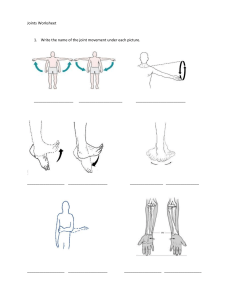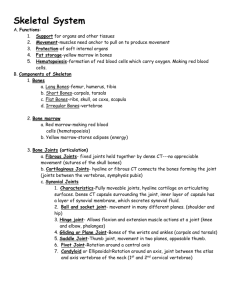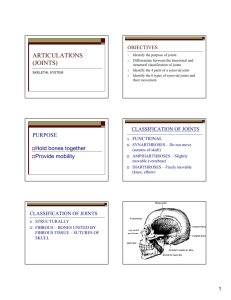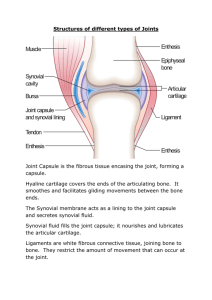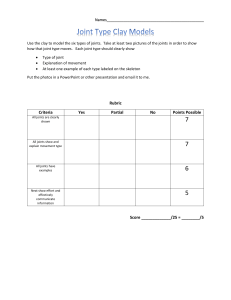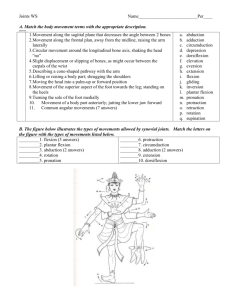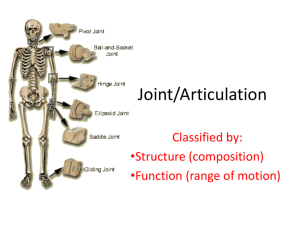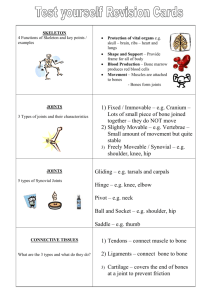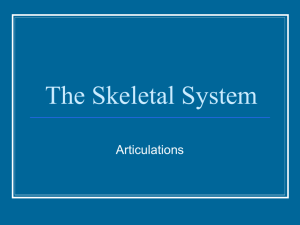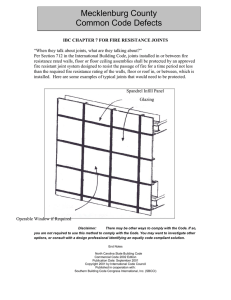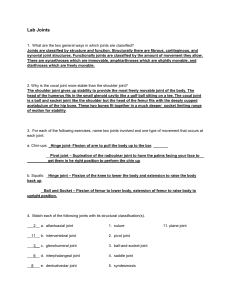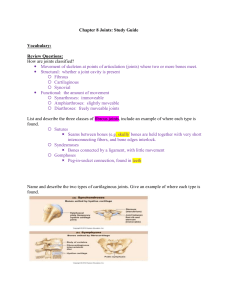I. II. III. write in an appropriate correction so that the statement now...
advertisement
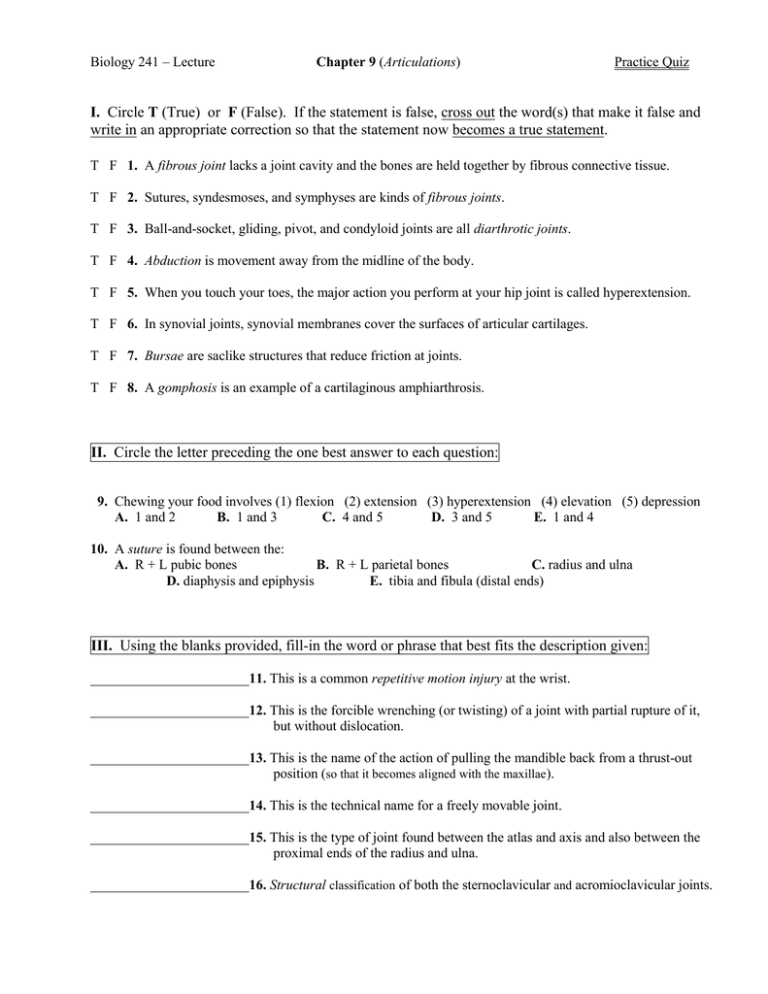
Biology 241 – Lecture Chapter 9 (Articulations) Practice Quiz I. Circle T (True) or F (False). If the statement is false, cross out the word(s) that make it false and write in an appropriate correction so that the statement now becomes a true statement. T F 1. A fibrous joint lacks a joint cavity and the bones are held together by fibrous connective tissue. T F 2. Sutures, syndesmoses, and symphyses are kinds of fibrous joints. T F 3. Ball-and-socket, gliding, pivot, and condyloid joints are all diarthrotic joints. T F 4. Abduction is movement away from the midline of the body. T F 5. When you touch your toes, the major action you perform at your hip joint is called hyperextension. T F 6. In synovial joints, synovial membranes cover the surfaces of articular cartilages. T F 7. Bursae are saclike structures that reduce friction at joints. T F 8. A gomphosis is an example of a cartilaginous amphiarthrosis. II. Circle the letter preceding the one best answer to each question: 9. Chewing your food involves (1) flexion (2) extension (3) hyperextension (4) elevation (5) depression A. 1 and 2 B. 1 and 3 C. 4 and 5 D. 3 and 5 E. 1 and 4 10. A suture is found between the: A. R + L pubic bones B. R + L parietal bones C. radius and ulna D. diaphysis and epiphysis E. tibia and fibula (distal ends) III. Using the blanks provided, fill-in the word or phrase that best fits the description given: _______________________11. This is a common repetitive motion injury at the wrist. _______________________12. This is the forcible wrenching (or twisting) of a joint with partial rupture of it, but without dislocation. _______________________13. This is the name of the action of pulling the mandible back from a thrust-out position (so that it becomes aligned with the maxillae). _______________________14. This is the technical name for a freely movable joint. _______________________15. This is the type of joint found between the atlas and axis and also between the proximal ends of the radius and ulna. _______________________16. Structural classification of both the sternoclavicular and acromioclavicular joints.
